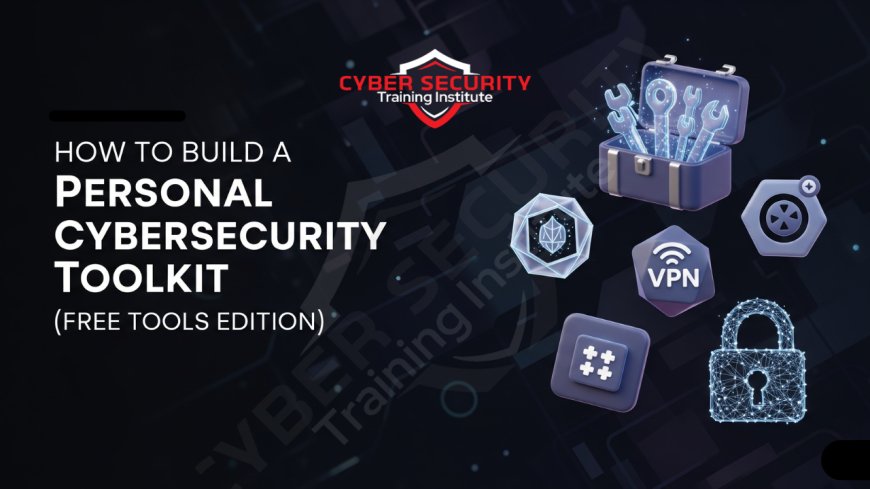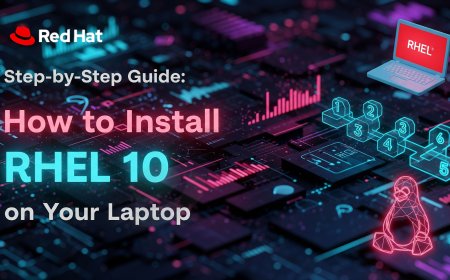How to Build a Personal Cybersecurity Toolkit (Free Tools Edition)
In today’s digital world, protecting your personal information is more important than ever. Cyberattacks are on the rise, from phishing scams to malware infections, and no one is immune. The good news? You don’t need to be a tech wizard or spend a fortune to stay safe online. By building a personal cybersecurity toolkit with free tools, you can secure your devices, safeguard your data, and browse the internet with confidence. This guide will walk you through the essentials, offering beginner-friendly tools and tips to create a robust defense against cyber threats. Whether you’re securing your home Wi-Fi, protecting your passwords, or avoiding shady websites, this blog post has you covered. Let’s dive in and explore how to build a cybersecurity toolkit that’s effective, free, and easy to use.

Table of Contents
- Why You Need a Cybersecurity Toolkit
- Essential Free Cybersecurity Tools
- Best Practices for Using Your Toolkit
- Staying Updated and Proactive
- Conclusion
- Frequently Asked Questions
Why You Need a Cybersecurity Toolkit
Cybersecurity isn’t just for businesses or tech experts—it’s for everyone. Every time you shop online, check your email, or post on social media, you’re at risk of cyberattacks. Hackers can steal your passwords, spy on your activities, or even lock you out of your own devices. A personal cybersecurity toolkit is like a digital first-aid kit: it equips you with the tools to prevent, detect, and respond to threats.
Free tools make cybersecurity accessible to everyone. They’re designed to be user-friendly, so you don’t need a computer science degree to use them. From securing your passwords to encrypting your files, these tools can significantly reduce your risk of falling victim to cybercrime. Let’s explore the must-have tools for your toolkit.
Essential Free Cybersecurity Tools
Below is a curated list of free tools to protect your digital life. Each tool serves a specific purpose, and together, they form a comprehensive defense system. The table summarizes the tools, their purposes, and where to find them.
| Tool | Purpose | Download Source |
|---|---|---|
| Bitwarden | Password Manager | bitwarden.com |
| VeraCrypt | File and Disk Encryption | veracrypt.fr |
| Malwarebytes | Anti-Malware Scanner | malwarebytes.com |
| uBlock Origin | Ad and Tracker Blocker | Browser Extension Stores |
| ProtonVPN | Virtual Private Network | protonvpn.com |
| HTTPS Everywhere | Secure Browsing | Browser Extension Stores |
1. Password Manager: Bitwarden
Passwords are your first line of defense, but reusing them or using weak ones is like leaving your front door unlocked. Bitwarden is a free, open-source password manager that securely stores your passwords and generates strong ones. It syncs across your devices, so you can access your logins anywhere.
- Why use it? Prevents password reuse and ensures complex passwords.
- How to start: Download Bitwarden, create a master password (make it strong!), and start adding your logins.
- Tip: Enable two-factor authentication (2FA) for extra security.
2. File Encryption: VeraCrypt
Want to keep sensitive files like tax documents or personal photos safe? VeraCrypt is a free tool that encrypts files or entire drives, making them unreadable without a password. It’s perfect for protecting data on your computer or USB drives.
- Why use it? Protects sensitive data from unauthorized access.
- How to start: Install VeraCrypt, create an encrypted container, and move your files into it.
- Tip: Back up your encrypted files to avoid losing access if you forget the password.
3. Anti-Malware: Malwarebytes
Malware can sneak onto your device through downloads or phishing emails. Malwarebytes offers a free version that scans and removes malware, spyware, and other threats. It’s lightweight and easy to use, even for beginners.
- Why use it? Detects and removes malicious software.
- How to start: Download the free version, run a scan, and follow the prompts to remove threats.
- Tip: Run scans weekly to catch threats early.
4. Ad and Tracker Blocker: uBlock Origin
Websites often track your activity or serve malicious ads. uBlock Origin is a free browser extension that blocks ads, trackers, and harmful scripts, keeping your browsing safe and private.
- Why use it? Reduces tracking and protects against malicious ads.
- How to start: Install it from your browser’s extension store (Chrome, Firefox, etc.).
- Tip: Customize filters to allow non-intrusive ads on sites you trust.
5. VPN: ProtonVPN
A Virtual Private Network (VPN) encrypts your internet connection, making it harder for hackers to spy on you, especially on public Wi-Fi. ProtonVPN offers a free plan with unlimited data and strong privacy features.
- Why use it? Secures your internet connection and hides your IP address.
- How to start: Sign up for ProtonVPN’s free plan and connect to a server before browsing.
- Tip: Use it on public Wi-Fi to stay safe at cafes or airports.
6. Secure Browsing: HTTPS Everywhere
Not all websites use secure connections (HTTPS). HTTPS Everywhere is a browser extension that forces websites to use secure connections when available, reducing the risk of data interception.
- Why use it? Ensures safer browsing on websites.
- How to start: Install it from your browser’s extension store.
- Tip: Combine it with uBlock Origin for maximum browsing protection.
Best Practices for Using Your Toolkit
Having the tools is only half the battle—using them effectively is key. Here are some best practices to maximize your cybersecurity:
- Update Regularly: Keep your tools and devices updated to patch security vulnerabilities.
- Use Strong Passwords: Let Bitwarden generate and store complex passwords for you.
- Enable 2FA: Add two-factor authentication wherever possible, like on email or banking apps.
- Be Cautious with Links: Avoid clicking suspicious links in emails or messages, even with protective tools.
- Backup Your Data: Regularly back up important files to an external drive or cloud service.
- Learn Phishing Signs: Look for red flags like misspellings or urgent demands in emails.
By combining these tools with good habits, you’ll create a strong defense against most cyber threats. It’s like locking your doors and setting an alarm—simple steps make a big difference.
Staying Updated and Proactive
Cyber threats evolve constantly, so staying informed is crucial. Follow these tips to keep your toolkit effective:
- Subscribe to Security Blogs: Sites like Krebs on Security or The Hacker News offer beginner-friendly updates.
- Check for Updates: Most tools notify you of updates—don’t ignore them!
- Join Online Communities: Forums like Reddit’s r/cybersecurity can provide tips and alerts.
- Run Regular Scans: Use Malwarebytes weekly to catch new threats.
- Monitor Accounts: Use services like Have I Been Pwned to check if your email or passwords have been leaked.
Being proactive doesn’t mean you need to become a cybersecurity expert. Small, consistent actions—like updating software or checking for data breaches—keep you ahead of the curve.
Conclusion
Building a personal cybersecurity toolkit doesn’t have to be complicated or expensive. With free tools like Bitwarden, VeraCrypt, Malwarebytes, uBlock Origin, ProtonVPN, and HTTPS Everywhere, you can protect your devices, data, and online activities from common threats. Pair these tools with good habits like updating software, using strong passwords, and staying cautious online, and you’ll have a solid defense against cyberattacks. Cybersecurity is about taking control of your digital safety, and with this toolkit, you’re well on your way. Start small, stay consistent, and browse with confidence!
Frequently Asked Questions
Is a free cybersecurity toolkit enough to stay safe?
Yes, a free toolkit with tools like Bitwarden, Malwarebytes, and ProtonVPN can provide strong protection if used correctly, but you must also practice good habits like avoiding suspicious links.
Do I need technical skills to use these tools?
No, these tools are designed for beginners with user-friendly interfaces and clear instructions.
Can I trust free tools with my data?
Reputable tools like Bitwarden and ProtonVPN are open-source and audited for security, making them trustworthy for personal use.
How often should I run malware scans?
Run Malwarebytes scans weekly or after downloading files from untrusted sources.
What’s the difference between a password manager and 2FA?
A password manager stores and generates passwords, while 2FA adds an extra step (like a code sent to your phone) to verify your identity.
Can I use these tools on my phone?
Yes, most tools like Bitwarden and ProtonVPN have mobile apps for iOS and Android.
Is a VPN necessary for home Wi-Fi?
It’s not always necessary, but a VPN like ProtonVPN adds extra security, especially on public Wi-Fi.
What happens if I forget my Bitwarden master password?
You may lose access to your vault. Set up recovery options or store the password securely offline.
Does uBlock Origin block all ads?
It blocks most ads and trackers but can be customized to allow non-intrusive ads on trusted sites.
Can VeraCrypt encrypt my entire hard drive?
Yes, VeraCrypt can encrypt entire drives, but start with smaller containers to learn how it works.
How do I know if a website is safe?
Look for HTTPS in the URL and use HTTPS Everywhere to enforce secure connections.
Can Malwarebytes remove all viruses?
It removes most common malware but may not catch every threat, so use it alongside other tools.
Do I need all these tools?
Not necessarily—start with a password manager and anti-malware, then add others based on your needs.
Can I use these tools on multiple devices?
Yes, tools like Bitwarden and ProtonVPN support multiple devices with a single account.
What’s the biggest cyber threat to individuals?
Phishing attacks are the most common, tricking users into giving away passwords or clicking malicious links.
How do I back up my encrypted files?
Copy VeraCrypt containers to an external drive or secure cloud storage, ensuring you remember the password.
Are browser extensions like uBlock safe?
Yes, uBlock Origin is open-source and widely trusted, but only download it from official browser stores.
Can I use ProtonVPN for streaming?
The free version has limited servers, so it may not work for all streaming services.
How do I stay updated on cyber threats?
Follow security blogs, subscribe to newsletters, or check sites like Have I Been Pwned for breaches.
Do these tools slow down my computer?
Most are lightweight, but Malwarebytes scans or ProtonVPN may slightly impact performance during use.
What's Your Reaction?
 Like
0
Like
0
 Dislike
0
Dislike
0
 Love
0
Love
0
 Funny
0
Funny
0
 Angry
0
Angry
0
 Sad
0
Sad
0
 Wow
0
Wow
0







![How to Install RHEL 10 on VMware/VirtualBox [Tutorial]](https://www.cybersecurityinstitute.in/blog/uploads/images/202509/image_430x256_68b56dc967a4a.jpg)









